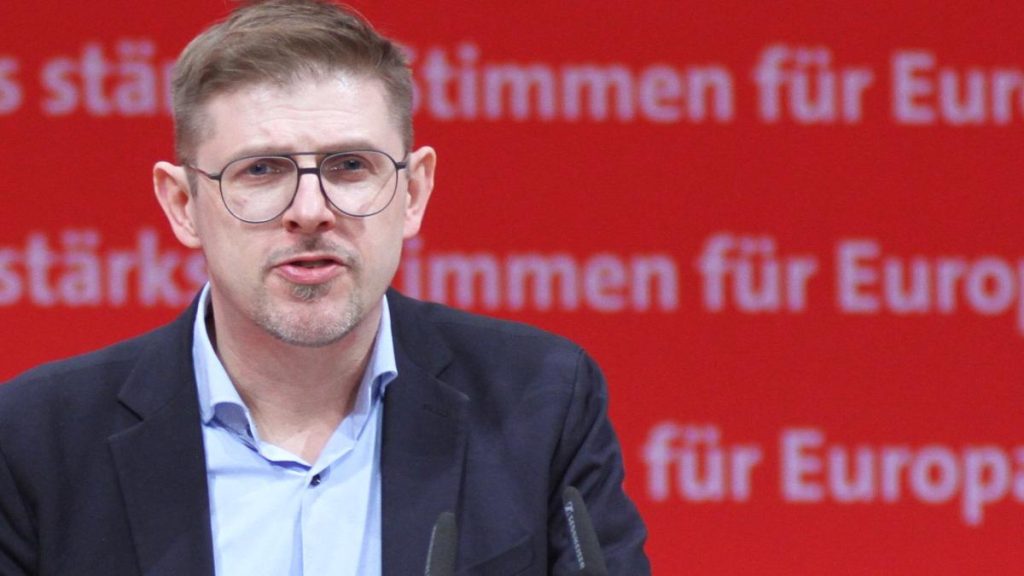After the attack on SPD MEP Matthias Ecke in Dresden, German Federal Interior Minister Nancy Faeser (SPD) proposed a special meeting of federal and state interior ministers. Faeser discussed this with the chairman of the Interior Ministers’ Conference, Brandenburg’s Interior Minister Michael Stübgen (CDU), as reported by “Bild am Sonntag”. According to the “Tagesspiegel”, Faeser suggested a meeting for next week. “The rule of law must and will further enhance the protection of democratic forces in our country,” Faeser told “Bild”. “We need to quickly discuss this at a special Interior Ministers Conference and develop a joint action plan for increased police presence on the ground, more protection, and a tough crackdown on enemies of democracy.”
SPD lead candidate for the European elections, Matthias Ecke, was attacked and seriously injured while putting up posters in Dresden. The party’s press release stated that there were also attempts to intimidate other poster teams, as well as poster destruction and insults. The party described the campaign helpers as being attacked by “thug squads”. The SPD leaders in Saxony, Henning Homann and Kathrin Michel, expressed their dismay and deemed the attacks unacceptable, emphasizing that violence and intimidation towards democratic processes contradict their core values. They called for a clear condemnation of such incidents, stating that these assaults have no place in society.
The attacks were not limited to the SPD, as a poster team for the Greens was also reportedly assaulted. The “Leipziger Volkszeitung” reported that a Green party poster team was attacked. Attacks on Green party members had already occurred the previous weekend in Chemnitz and Zwickau. The police in Dresden confirmed the incident during poster placement and Ecke’s involvement, stating that four unknown individuals assaulted a 41-year-old late Friday night. The investigators from state security believe that the incidents are related based on matching physical descriptions, timing, and proximity.
Numerous politicians strongly condemned the attacks, with Chancellor Olaf Scholz calling for a united stance against right-wing extremism. Scholz described the attack on Ecke as distressing and emphasized the need for a resolute response to such threats against democracy. He urged for full recovery for Ecke and stressed the importance of thorough investigation. Saxony’s Interior Minister Armin Schuster also denounced the attacks, highlighting the necessity to protect elected representatives and volunteers, essential during election campaigns.
Bundespräsident Frank-Walter Steinmeier expressed his horror at the violent attacks on politicians from the SPD and Greens. He called for a united front against such assaults, emphasizing the need for peaceful political discourse using arguments and respect. Thuringia’s Minister President Bodo Ramelow attributed the attack to hate and misinformation, urging solidarity with Matthias Ecke. The incident also sparked outrage in Berlin and Brandenburg, with officials condemning the violence as an attack on democratic values and stressing the importance of not tolerating such behavior.
Statistics from the Saxon Interior Ministry revealed a rise in politically motivated crimes related to elections, including attacks on officials and candidates. Observations of increasing violence against political figures and parties raised concerns among officials, highlighting the need for a collective effort to counter hate and extremism. The ongoing attacks underline the dangers posed by radicalism and emphasize the critical role of protecting democratic processes against violence and intimidation.















